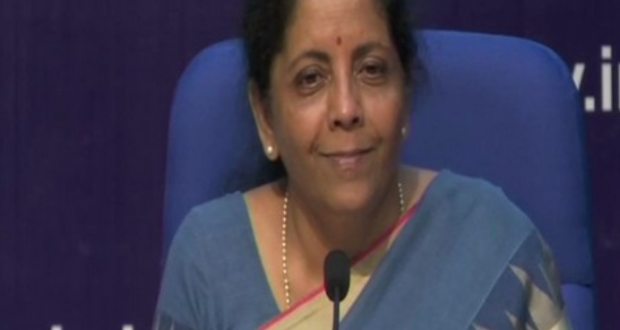DAINIK NATION BUREAU The topic of loan recovery has long been a contentious issue in the financial landscape of India. Amidst the challenges posed by economic downturns and the impact of the pandemic, the need for recovering loans without causing undue distress to borrowers has been a subject of concern. Union Finance Minister Nirmala Sitharaman addressed the issue, instructing banks on adopting a more empathetic approach towards loan repayment.
The Directive: A Step Towards Empathy
In a country where access to credit is crucial for personal and business growth, the loan recovery process plays a pivotal role in maintaining the financial health of the banking sector. However, the aggressive tactics employed by recovery agents have often led to distress among borrowers, especially those facing financial hardships. The directive from Finance Minister Nirmala Sitharaman aims to change this scenario, urging banks to handle loan recovery with greater empathy and understanding.
The minister’s emphasis on a less “merciless” approach marks a shift towards recognizing the socio-economic challenges faced by borrowers, especially during times of economic upheaval. By urging banks to exercise restraint in harsh recovery measures, the Finance Minister has sent a clear message about prioritizing the welfare of borrowers and fostering a more empathetic banking system.
Balancing Recovery and Empathy :
Striking a balance between loan recovery and empathy is essential for maintaining the stability of the financial system and protecting the interests of both borrowers and lenders. On one hand, banks need to recover the loans to ensure the availability of credit for other deserving borrowers and to safeguard their own financial health. On the other hand, borrowers who face genuine financial hardships deserve understanding and support from financial institutions.
The Finance Minister’s directive encourages banks to adopt a more holistic approach to loan recovery, taking into account individual circumstances and providing customized solutions. This approach could involve restructuring loans, offering grace periods, or exploring alternate repayment plans, depending on the borrower’s specific needs. By showing empathy and flexibility, banks can not only foster goodwill among their customers but also encourage borrowers to strive towards timely repayment without feeling overwhelmed by the burden of debt.
Building a Responsible Banking System :
Responsible lending and responsible borrowing are crucial aspects of a robust banking system. While financial institutions have a duty to evaluate borrowers’ creditworthiness and ensure the recovery of loans, they also have a responsibility to act ethically and empathetically when dealing with distressed borrowers. This not only promotes financial inclusivity but also helps to establish a long-term, trusting relationship between banks and their customers.
In addition to the Finance Minister’s directive, regulators can play a pivotal role in creating an enabling environment for responsible loan recovery. Implementing clear guidelines for loan recovery practices, monitoring bank behavior, and encouraging transparent communication between borrowers and lenders can further enhance the efficiency and fairness of the system.
The directive issued by Finance Minister Nirmala Sitharaman, instructing banks on adopting a more empathetic approach towards loan recovery, reflects the government’s commitment to fostering a responsible and inclusive banking system. By acknowledging the challenges faced by borrowers during times of economic stress and guiding financial institutions to handle loan recovery with compassion, the government aims to strike a balance between recovery and empathy.
As India continues to navigate economic challenges, the collaboration between borrowers and lenders in finding mutually beneficial solutions becomes imperative. Building a resilient financial system that values empathy while ensuring loan repayment is essential for fostering sustainable economic growth and financial well-being for all stakeholders involved.
 Dainik Nation News Portal
Dainik Nation News Portal

